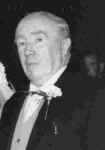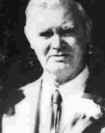Magill Magazine article Sept. 2002
Search Allof Ireland.com
The Irish News, 17 August 2004:


'Christmas' bombing secrets may be told
Campaigners hope that a report due to be published by Justice Henry Barron early next year will pave the way for a public inquiry into the 1975 Dundalk bombing, Southern Correspondent Valerie Robinson reports
Former Supreme Court judge Justice Henry Barron is expected to publish his report into the 1975 Dundalk bombing by the New Year.
The report is seen by campaigners as the first step towards a full public inquiry into an attack that remains shrouded in secrecy.
Dundalk was seen as a hotbed of republican sympathy in 1975. It is believed that the loyalist Red Hand Commando group targeted the Co Louth town to teach republicans a lesson., that their presence could be felt anywhere in the Republic.
The South was still reeling from the loyalist car bomb attacks in Dublin and Monaghan in May the previous year. Thirty-three people, as well as an unborn baby, were killed and hundreds were injured in the no-warning explosions.
Months earlier, three CIE workers had also died in two separate blasts in Dublin city centre.
Loyalists struck again at 6.22pm on Friday December 19 1975, when a car bomb exploded outside Kay's Tavern in Crowe Street in Dundalk. More than 20 people were injured - some suffering from serious burns and shrapnel wounds.
Hugh Watters (60), a tailor, is believed to have left his shop to deliver suits and clothing to people in the pub. He died instantly in the blast.
Jack Rooney (61), a retired fireman working as a lorry driver, was walking down the street across from the pub when he also suffered massive injuries in the explosion. Mr Rooney, who frequently cycled and was in excellent health, lived for three days before losing his battle for life because of shrapnel injuries. He was buried on Christmas Eve.
Both families have told how they received no offers of counselling or support from authorities in the days and weeks after the bombing.
Mr Rooney's daughter, Maura McKeever, who had married shortly before the attack, told the Irish News that the family was never visited by gardai or given updates on the investigation.
No-one has ever been charged in connection with the blast.
Ms McKeever, who was aged 23 at the time of the explosion, said the autopsy into the men's deaths on January 15 1976 took just half an hour to conclude.
"There's no way that they could have had all the necessary information at the time of the inquest," she said.
"My father was buried on Christmas Eve, businesses were closed during the Christmas holiday. How could there have been enough information to hold an inquest? We were in an awful state of shock, so everything just happened."
In the years that followed, the families learned nothing about the Garda investigation or whether investigating officers were close to identifying and arresting those behind the attack.
The Red Hand Commando had claimed responsibility within days of the explosion.
It later emerged that the bombers were based in Portadown, Co Armagh and were widely suspected of having acted in collusion with British security forces.
Five months later the Red Hand Commando struck again in Dundalk, abducting and murdering forestry worker Seamus Ludlow (47), after they had failed to locate their original target, a Co Louth-based IRA leader.
The Ludlow murder remains unsolved officially, although the names of four suspects have been in the public domain for some time.
In his book Dublin-Monaghan Bombings and the Murder Triangle, author Joe Tiernan claimed that two of the men responsible for the Dundalk bombing were dead and they may have been responsible for around 150 Catholic murders during the 1970s and 80s.
Mr Tiernan also claimed that while researching the book he was told by a senior garda that the RUC had refused to help investigators trace the vehicle used to carry the bomb.
The families of Jack Rooney and Hugh Watters have consistently called on the Irish government to set up a public inquiry to establish the facts surrounding the bombing and the subsequent Garda investigation.
Ms McKeever said the families were prompted to begin their campaign after realising that the state was determined to forget the men's murders.
"What happened was always in our minds, but it took us a long time to realise that no-one was doing anything. I thought that as citizens of this state the gardai would fully investigate my father's death, but that obviously wasn't happening," she said.
"We believe the only way to handle this is to have a full public inquiry where witnesses would be compelled to give evidence. These people (the bombers) are still walking around. When they planted the bomb they knew they would kill innocent people, but didn't care. We want justice."
The relatives hope that Justice Barron will be able to answer some of their questions when his findings are published.
In his report on the attacks in Dublin and Monaghan, published last December, the judge found there were "grounds for suspecting that the bombers may have had assistance from members of the (British) security forces, but any collusion between the UVF bombers and the security forces remains a mater of inference".
The government fell short of establishing a public inquiry into the 1974 atrocity, but the families of the two Dundalk victims remain hopeful that they may still get the justice they demand.
[Home] [Back to Top.]
Print
this page. ![]()
![]() Powered by Bravenet
Powered by Bravenet
Last edited: 21 August 2004 12:13:50
Visit the Ludlow family's website.
Copyright
© 2004 the Rooney, Watters and Ludlow
families. All
rights reserved.
Revised: August 21, 2004
.